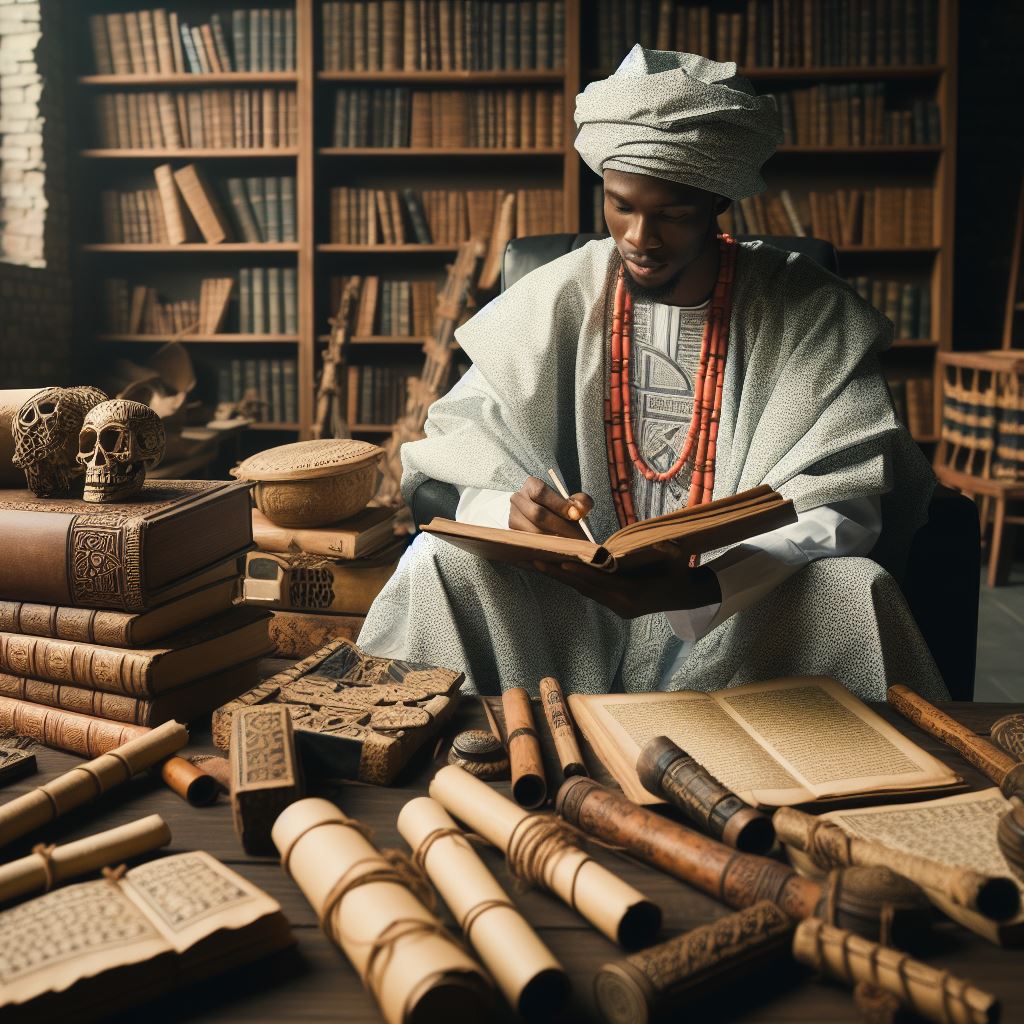Introduction
Anthropological approaches in African and Asian studies stand as gateways to understanding the rich tapestry of cultures and societies within these diverse regions.
Anthropologists employ an array of methodologies, ranging from ethnography to participant observation, to unravel the complexities of human behavior, beliefs, and practices.
Through their lens, we gain profound insights into the intricacies of kinship systems, ritual practices, social structures, and symbolic meanings embedded within communities.
Understanding different cultures and societies transcends academic curiosity; it is vital for fostering global understanding and cooperation in an increasingly interconnected world.
In this blog post, we embark on a comprehensive exploration of anthropological research in African and Asian contexts, delving deep into topics such as cultural relativism, historical legacies, and contemporary challenges.
Moreover, we will analyze the relevance of anthropological findings in addressing pressing issues like globalization, urbanization, environmental sustainability, and social justice.
By contextualizing anthropological approaches within broader academic and societal frameworks, we aim to illuminate the profound significance of this discipline in shaping our understanding of the human experience.
Join us as we embark on a journey of discovery, enlightenment, and cultural appreciation through the lens of anthropological approaches in African and Asian studies.
Historical development of anthropological approaches in African and Asian studies
- The field of anthropological studies in Africa and Asia has a rich history that dates back to the early 20th century.
- Anthropologists were drawn to these regions due to their cultural diversity, unique customs, and rich history.
- Key scholars such as Franz Boas, Margaret Mead, and Bronislaw Malinowski made significant contributions to the field.
- Their work laid the foundation for future anthropologists to conduct research and studies in Africa and Asia.
Overview of how anthropological studies have evolved in these regions
- In the early days, anthropologists focused on studying primitive societies in Africa and Asia.
- They used methods such as participant observation, interviews, and ethnographic research to understand these cultures.
- Over time, anthropological approaches in these regions expanded to include urban areas, modern societies, and global issues.
- This shift allowed anthropologists to study the impact of globalization, colonialism, and modernization on African and Asian societies.
Key scholars and their contributions to the field
- Franz Boas, known as the father of modern anthropology, emphasized the importance of cultural relativism.
- Margaret Mead’s studies on gender roles in Samoa challenged traditional views on human nature.
- Bronislaw Malinowski’s ethnographic research in the Trobriand Islands laid the foundation for participant observation.
- Claude Lévi-Strauss introduced structuralism, which focused on the underlying structures of culture and society.
Examples of groundbreaking research and studies
- One notable study is Malinowski’s “Argonauts of the Western Pacific,” which revolutionized ethnographic research methods.
- Mead’s work in Samoa challenged Western conceptions of gender and sexuality, sparking debates in the field.
- Boas’ research on the Kwakiutl tribe in North America demonstrated the importance of historical context in anthropology.
- Lévi-Strauss’ structuralist approach influenced generations of anthropologists to study culture as a system of symbols and meanings.
Read: Communication Arts: Job Prospects and Salaries
Cultural relativism and ethnocentrism in African and Asian studies
Definition of cultural relativism and ethnocentrism
Cultural relativism is the idea that a person’s beliefs, values, and practices should be understood based on that person’s own culture, rather than be judged against the criteria of another.
Ethnocentrism, on the other hand, is the belief that one’s own culture is superior to others and the tendency to view one’s own culture as the standard by which all others are judged.
Importance of avoiding ethnocentric biases in anthropological research
- Facilitates better understanding of diverse cultural practices.
- Reduces the imposition of biased interpretations on other cultures.
- Promotes respect and tolerance for cultural differences.
- Ensures more accurate and objective research outcomes.
Case studies showcasing cultural relativism in practice
- Anthropological studies in India: Researchers studying Indian caste systems use cultural relativism to understand the complexities of the social hierarchy.
- Traditional healing practices in Africa: Anthropologists studying traditional medicine in Africa apply cultural relativism to appreciate the cultural significance of these practices.
- Rituals and ceremonies in Southeast Asia: Scholars exploring rituals and ceremonies in Southeast Asia use cultural relativism to avoid imposing Western perspectives on these cultural practices.
Therefore, the principles of cultural relativism play a crucial role in African and Asian studies, helping researchers broaden their perspectives and approach cultures with respect and understanding.
Read: Impact of Communication Arts on Nigerian Media
Fieldwork methods used in African and Asian studies
When conducting research in African and Asian countries, anthropologists often rely on fieldwork methods such as ethnographic studies and participant observation.
These methods are essential for gaining a deeper understanding of the cultures, beliefs, and practices of the local communities.
Overview of ethnographic studies and participant observation
Ethnographic studies involve immersing oneself in the culture of the community being studied.
Anthropologists spend extended periods of time living among the people, observing their daily lives, rituals, and traditions.
Participant observation is another key method where researchers actively participate in the activities of the community to gain firsthand insights.
Challenges and benefits of conducting fieldwork in these regions:
Challenges
- Language barriers: Communication can be difficult if the researcher does not speak the local language.
- Cultural differences: Understanding and respecting cultural norms and values is crucial for successful fieldwork.
- Logistical issues: Navigating unfamiliar environments and dealing with local bureaucracy can be challenging.
Benefits
- Rich data collection: Immersion in the community allows for in-depth data collection and analysis.
- Personal connections: Building relationships with locals can provide valuable insights and perspectives.
- Cultural exchange: Fieldwork offers opportunities for cultural exchange and mutual learning.
Importance of building rapport with local communities
One of the most critical aspects of successful fieldwork in African and Asian studies is building rapport with the local communities.
This involves establishing trust, mutual respect, and open communication with the people being studied.
Building rapport helps researchers gain acceptance into the community and ensures the smooth progress of the research process.
Overall, fieldwork methods play a crucial role in African and Asian studies, providing anthropologists with valuable insights into the diverse cultures and societies of these regions.
By overcoming challenges, leveraging benefits, and establishing strong relationships with local communities, researchers can conduct meaningful and impactful research that contributes to our understanding of the world.
Read: Internship Opportunities for Communication Arts Students

Gender studies in African and Asian contexts
Exploring Gender Dynamics in African and Asian Societies
Gender studies in African and Asian contexts play a crucial role in understanding the complex interplay between culture, society, and individual identities.
By exploring gender roles and identities in diverse cultures, researchers are able to shed light on the ways in which gender norms and expectations shape people’s lives.
Impact of Colonialism and Globalization
One key aspect of gender studies in these regions is the examination of how colonialism and globalization have influenced gender dynamics.
The legacy of colonial rule continues to impact gender relations in many African and Asian societies, with historical power structures often shaping modern notions of masculinity and femininity.
Globalization has also had a significant impact on gender roles, as Western ideals of gender equality and women’s empowerment have influenced social norms in many parts of Africa and Asia.
This has led to both positive and negative changes in gender dynamics, as traditional roles are challenged and new opportunities emerge for women and marginalized genders.
Case Studies on Gender and Culture
Case studies are a valuable tool for understanding the intersection of gender and culture in African and Asian societies.
By examining specific examples, researchers can gain insight into the ways in which gender identities are constructed and negotiated within different cultural contexts.
For example, studies on gender and religion in India have highlighted the ways in which religious beliefs and practices shape ideas about gender roles and relationships.
Similarly, research on gender and politics in Africa has shown how political systems can both uphold and challenge traditional gender norms.
Overall, gender studies in African and Asian contexts provide a rich and nuanced understanding of the ways in which gender operates at the intersection of culture, society, and individual experience.
By exploring these dynamics, researchers are able to contribute to broader conversations about gender equality and social justice in a global context.
Read: Developing Critical Thinking in Language Arts
Postcolonial Perspectives in African and Asian Studies
Power Dynamics and Colonial Legacies in Anthropology
Anthropology, as a discipline rooted in understanding human cultures and societies, has grappled with power dynamics and colonial legacies.
Historically, anthropologists have often operated within colonial contexts, serving as agents of colonial expansion and reinforcing Eurocentric perspectives.
The legacy of colonialism continues to shape anthropological research, with indigenous cultures often misrepresented or marginalized in academic discourse.
Decolonizing Anthropological Research and Knowledge Production
In recent years, there has been a growing movement within anthropology to decolonize research practices and knowledge production.
Decolonizing anthropology involves challenging colonial narratives, centering indigenous voices and perspectives, and acknowledging the role of anthropologists in perpetuating colonial hierarchies.
This involves critically examining research methodologies, ethics of knowledge production, and inherent power dynamics in anthropological practice.
Examining the Role of Indigenous Knowledge and Perspectives
Central to the decolonization of anthropology is the recognition of the value of indigenous knowledge and perspectives.
Indigenous communities hold deep-seated knowledge systems sustaining them for generations. However, Western-centric academia often disregards or dismisses them.
Centering indigenous knowledge allows anthropologists to gain a holistic understanding of cultures and societies. It challenges dominant narratives and fosters respect for diverse ways of knowing.
Moreover, incorporating indigenous perspectives into anthropological research can lead to more ethical and equitable practices.
It empowers indigenous communities to participate in the research process, ensuring that their voices are heard and respected.
By collaborating with indigenous scholars and practitioners, anthropologists can co-produce knowledge that is relevant, meaningful, and impactful for indigenous communities.
Generally, analyzing power dynamics and colonial legacies in anthropology emphasizes the need for decolonization. It advocates for indigenous knowledge and perspectives’ inclusion.
Decolonizing anthropology involves confronting uncomfortable truths about its complicity in colonialism. It aims to promote ethical research practices.
By centering indigenous voices and perspectives, anthropologists contribute to a more inclusive understanding of African and Asian cultures.
Environmental anthropology in African and Asian regions
Traditional Ecological Knowledge and Sustainable Practices
Indigenous communities in African and Asian regions hold invaluable traditional ecological knowledge. This knowledge enables harmonious coexistence with natural surroundings.
This knowledge encompasses sustainable practices for hunting, fishing, agriculture, and resource management.
Anthropologists studying these communities have highlighted the importance of preserving and integrating traditional knowledge into modern conservation efforts.
By embracing and respecting indigenous practices, we can work towards a more sustainable future for both people and the environment.
Impact of Globalization and Urbanization on Local Environments
The rapid forces of globalization and urbanization have significantly transformed the landscapes and ecosystems of African and Asian regions.
With the influx of industrialization and modernization, many local environments have faced degradation, pollution, and habitat loss.
Environmental anthropologists have emphasized the need to examine the socio-economic dynamics driving these changes and their impacts on indigenous communities.
By understanding the complex interactions between local populations and global processes, we can develop more effective conservation strategies.
Research on Climate Change and Environmental Conservation
Anthropologists in African and Asian regions conduct extensive research on environmental conservation efforts to address climate change challenges.
This includes studying the effects of deforestation, pollution, and habitat destruction on biodiversity and ecosystems.
Researchers collaborate with local communities and organizations, implementing innovative conservation projects. These projects aim to mitigate climate change impacts.
Through interdisciplinary approaches, anthropologists play a crucial role in advocating for sustainable development and environmental stewardship.
Conclusion
Lastly, we have explored the significance of anthropological approaches in studying African and Asian societies.
These approaches provide valuable insights into diverse cultures and traditions.
By incorporating anthropological methodologies, researchers can gain a deeper understanding of social dynamics, belief systems, and practices in these regions.
This interdisciplinary approach helps bridge gaps and promotes cross-cultural understanding.
It is crucial to recognize the importance of cultural relativism and reflexivity when conducting research in African and Asian contexts.
Anthropological lenses allow for a more nuanced analysis of complex social structures and systems.
Therefore, there is a pressing need to further explore and expand the use of anthropological approaches in African and Asian studies.
By doing so, we can uncover hidden narratives, challenge stereotypes, and promote inclusivity in academic research.
It is our collective responsibility to engage in critical dialogue and push the boundaries of traditional research methodologies.
Let us embrace the diversity of human experiences and continue to unravel the intricate tapestries of African and Asian societies.
As we move forward, let us remember that anthropology offers a unique lens through which to study and appreciate the rich cultural heritage of these regions.
Together, we can contribute to a more holistic and inclusive understanding of our global community.




